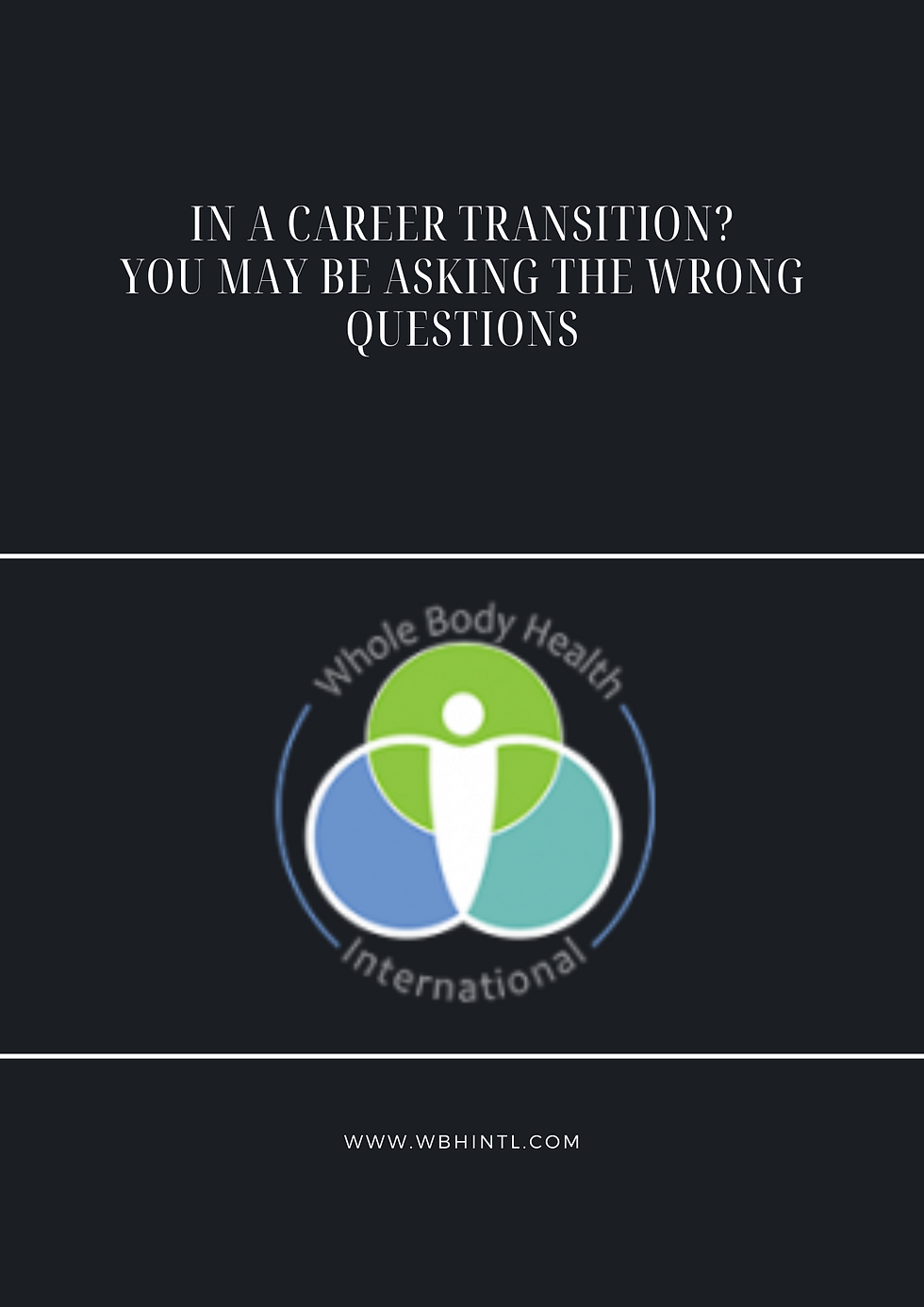The World is Changing Faster Than We Can Process -How to Stay Centered
- juan@wbhintl.com

- Sep 22
- 2 min read
Everywhere we look, the rate of change is accelerating: wars erupt, governments shift, technology advances faster than laws or culture can keep up. Our nervous systems, however, evolved for a slower, steadier world.
Science shows that constant uncertainty and threat cues keep our stress systems in overdrive. The sympathetic nervous system (fight/flight) and the HPA axis (cortisol release) were built for short bursts — a predator attack, a moment of danger — not for 24/7 exposure to global crises, political violence, climate shocks, and information overload.

The result? Anxiety, poor sleep, attention drained, decision-making compromised. Neuroscientist Robert Sapolsky calls this the “mismatch” between ancient biology and modern reality.
Recent events highlight this mismatch:
• Political violence in the U.S. has shaken public trust and increased polarization.
• Global conflicts (Ukraine, the Middle East, Sudan) and rising military spending add to a sense of instability — while also worsening climate stress through emissions.
• Climate crises are escalating: this year saw record coral bleaching and “climate whiplash” events (floods to droughts within weeks).
• The sense that the Doomsday Clock is closer to midnight than ever — reflecting nuclear, climate, and misinformation threats.
Individuals are experiencing record levels of low mood and with it, an increasing demand for mental health resources.
The Stoics, who lived through wars and upheaval of their own, remind us:
“We suffer more in imagination than in reality.” — Seneca
And Rumi offers a softer echo:
“Try not to get tangled in your fears. They are like ropes that hold you back. Leave them behind.”
What we can do — building resilience in a turbulent age
• Limit input: Protect attention. Schedule specific windows for news and social media instead of constant exposure.
• Ground the body: Sleep, exercise, and breathing practices reset the nervous system and lower cortisol.
• Create rituals of stability: Simple routines (morning reflection, evening walk, family meals) add predictability when the world feels chaotic.
• Anchor in values: Clarify what matters most. As Marcus Aurelius said, “You have power over your mind — not outside events. Realize this, and you will find strength.”
• Seek connection: Close relationships buffer the stress response more powerfully than almost anything else.
We cannot stop the speed of cultural, political, and environmental change. But we can train our nervous systems — and our spirits — to remain steady in the storm.
Rumi wrote, “Try to accept the changing seasons of your soul, even if you did not wish for the winter.”
The world will keep shifting. Our task is not to resist the pace of change, but to become grounded enough to adapt with clarity, purpose, and grace.







"The World is Changing Faster Than We Can Process - How to Stay Centered" is a thought-provoking read that emphasizes mindfulness, balance, and self-awareness in today’s fast-paced life. Staying grounded amidst constant change is essential for mental clarity and emotional well-being. Just like maintaining precision and consistency in life, achieving flawless embroidery requires expertise and attention to detail. Using the best embroidery digitizing services ensures that every design is perfectly translated into stitches, maintaining quality and accuracy. Both staying centered in life and relying on professional digitizing services highlight the importance of patience, skill, and thoughtful execution for exceptional results.
I’ve been using Mahadev Book for months now and absolutely love the platform. Creating my Mahadev Book ID was super fast, and the Mahadev Book Login process works smoothly every time. Definitely one of the most secure and trusted gaming sites out there!
Join Now :https://mahadevbooks.today/
“Mahadev Book is super fast and very secure. My Mahadev Book ID was created instantly, and logging in is always smooth. I’ve never faced any issues, and the WhatsApp support team is quick to help. It’s one of the best platforms for trusted and safe access.”
join now:https://mahadevbooks.today/
“I had an excellent experience with Mahadev Book. The ID setup was instant, and logging in is always quick and secure. The platform feels safe, and the support team is responsive and polite. I completely trust Mahadev Book and highly recommend it!”
join now:https://mahadevbooks.today/
Dot and Doc makes studying abroad simple, transparent, and stress-free. Their strong global university partnerships and student-first approach ensure you get the right guidance at every step. Whether it’s MBBS abroad or other global programs, Dot and Doc helps students achieve their dreams with honesty and expertise. Begin your journey to global success with Dot and Doc today! ✈️
join now:https://dotanddoc.com/